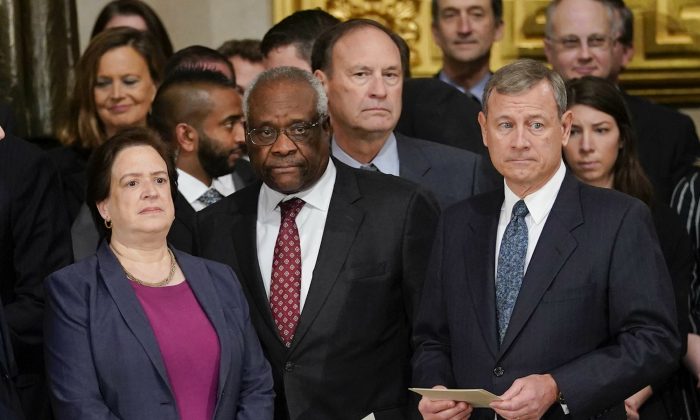Supreme Court Rejects Parents’ Challenge to Wisconsin’s Transgender Education Policy
Two lower courts dismissed the lawsuit, concluding that a parents’ group did not have the legal standing to pursue the case.
On December 9, the Supreme Court rejected a challenge to a policy from a Wisconsin school district that permits students to pursue gender identity transitions without parental notification.
While three justices expressed interest in hearing the case, four votes are necessary under court regulations to arrange oral arguments.
As of now, 26 states have implemented laws prohibiting transgender treatments for minors. Some of these laws also restrict transgender participation in school athletics, mandate gender-specific restrooms, and ban minors’ attendance at drag shows. Conversely, several states have enacted legislation that safeguards gender treatments for minors.
A federal district court dismissed the Wisconsin case in February 2023, determining that Parents Protecting Our Children did not have the legal standing to contest the policy. This ruling was later upheld by the U.S. Court of Appeals for the Seventh Circuit in March 2024.
Standing is the legal right of an individual to initiate a lawsuit. The parties involved must demonstrate a sufficient connection to the claims to justify their participation in the legal proceedings.
The petition also claimed that the District trained its staff to believe that “parents are not entitled to know their kids’ identities; this knowledge must be earned.”
The petition referenced a previous Supreme Court decision in Troxel v. Granville (2000), which recognized that parents have a “fundamental constitutional right to make decisions regarding the upbringing of [their] children.”
Additionally, the court ruled in Parham v. J.R. (1979) that any governmental attempt to “supersede parental authority” is unconstitutional and contrary to American tradition.
The petition called for the Supreme Court to accept the Eau Claire case to establish that “parents affected by such policies should have the standing to challenge them. If they do not, it indicates a serious deviation in federal standing law,” it stated.
The group admitted that their lawsuit was filed “as a facial pre-enforcement challenge to invalidate the entire [school district’s] new policy,” according to the brief.
Furthermore, the group “detrimentally mischaracterized” the administrative guidance regarding the policy, “leaning on their own speculative interpretation rather than the content of the document itself.”
The guidance outlines the formation of a “Gender Support Plan” designed to support “educational needs and ensure that the student can access and participate in the District’s educational programs and activities.”
The brief asserted that gender support plans are “kept within a student’s permanent pupil records file,” which is “always accessible to their parents.”
Justice Brett Kavanaugh suggested that he would support the group’s petition but did not elaborate on the reasoning.
Alito stated that the “parents’ apprehension concerning the school district making decisions for their children without their knowledge and consent is not ‘speculative.’ They are simply accepting the school district’s claims at face value.”
Alito also expressed worry that some federal courts may be “yielding to the temptation” to interpret standing doctrine “as a means of evading contentious constitutional issues.”
While it is important for courts to respect “the limits of their constitutional authority, it is equally vital that they fulfill their ‘virtually unflagging obligation … to exercise the jurisdiction given them,” he wrote, referencing the 1976 case Colorado River Water Conservation District v. United States.





